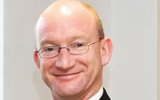“There has been a lot of talk in the industry about fairer compensation for work done, but the securities services industry does not have a strong track record in sticking to a transparent pricing model.” Paul Keltie of HSBC comments
The credit crunch and ensuing economic downturn have coincided with significant changes in the global alternative fund services industry. This has seen some firms slimming down their operations and others began rethinking the way that they provide their services.
The consolidation process is resulting in changes of ownership to a number of fund administrators as other global or regional service providers enter the market. In many cases, this involves adaptation of the operations to the models and systems espoused by the acquirer and depends on the ability of management to carry through the restructuring required without compromising the interests of both clients and investors.
The industry is witnessing a polarisation between global service providers that operate through international networks and offer services such as business recovery spread across a number of jurisdictions, and niche firms that specialise in serving smaller and start-up funds that do not require sizeable investment in more advanced technical services.
In the polarisation, administrators need to know what their offerings and points of differentiation are, ie, are they niche or global? That polarisation should continue in the near future following the approval by the European Parliament of the Alternative Investment Fund Managers Directive, especially with regard to the requirement for a depository to be appointed for each alternative investment fund and the raising of the liability bar relating to that role.
The devil will be in the detail, and serious strategic consideration will be given to the shape of operating models by both fund managers and service providers.
Whether niche or global, there are many ways to compete. For example, there is having a highly skilled workforce, expertise in specific fields such as alternative funds, a depth of capabilities, compliance and secretariat skills, jurisdictional expertise and advanced technology.
Understanding the needs of investors is also critical. The requirements of investors are converging rapidly in the market. Furthermore, the investor currently has all the leverage, since funds of all types are heavily focused on increasing the assets in their funds. Recent events, from Lehman to Madoff, have focused investors (and regulators) to have a deeper understanding of their investments and investment providers, from supplier relationships to liability, from securities lending and rehypothecation to soft commissions and foreign exchange arrangements.
Are all investors in all geographies asking exactly the same questions? No, but the global operating environment will ensure standardisation over time.
Obvious questions such as how assets are priced, who is the safekeeper of assets, frequency of pricing, and liability for errors are clearly being asked everywhere. But deeper questions are emerging, such as what happens in the event of sub-custodian default, or are assets held segregated or omnibus, and are assets segregated from other clients, for example hedge funds.
In terms of asset pricing, there are two main challenges in calculating Nav. First, there’s the pressure (investor-led) to increase the frequency of valuations in the alternative space. Second, there’s the trend in the traditional space towards more complex, alternative investments on a daily pricing model.
In both instances, the manual effort required to price illiquid instruments more frequently is not priced into the current operating model. There has been a lot of talk in the industry about fairer compensation for work done, but the securities services industry does not have a strong track record in sticking to a transparent pricing model (eg, this would require service providers to move away from low-price, asset gathering deals).
In addition, family offices and institutional investors are behind an increase in managed accounts as a way of achieving segregation and independence from funds. This may also contribute to a polarisation in the asset management industry.
For example, large (safe) brands gathering the largest asset pools and smaller, boutique managers closing their funds at a manageable level to optimise trading strategies and ensure that they remain nimble (and independent).
In the current environment, with memories of the crisis still fresh, not only fund managers, but their underlying investors, are paying much closer attention to the institutional solidity and depth of capabilities of fund service providers.
This is an important factor in movements of business between administrators as managers, having come through the upheavals of the past two years, now start to review their servicing arrangements.
Paul Keltie is head of fund administration, HSBC Securities Services (Guernsey)





